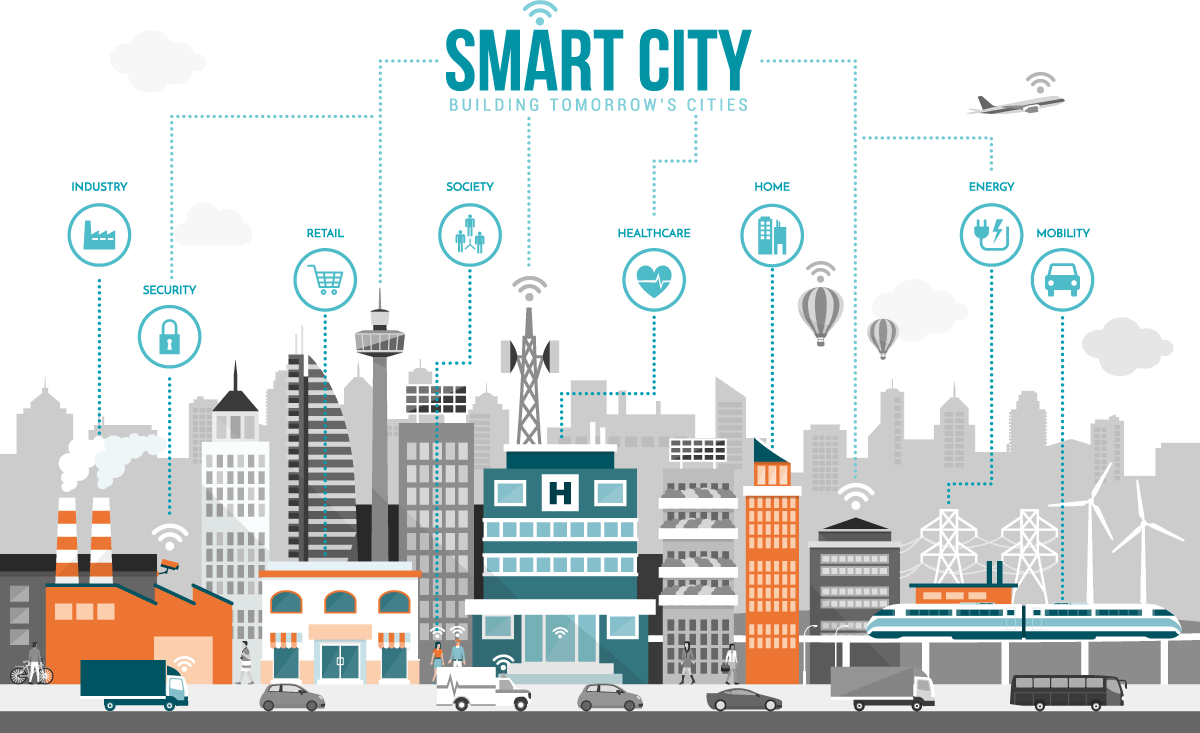A recent virus outbreak in Wuhan will shape China’s smart cities vision. After 11 million people have been under quarantine for 3 months, the government is investing heavily to upgrade the country’s digital healthcare system, enlisting technology giants like Tencent and insurance group Ping An. A unit of the latter has partnered with local governments in Shenzhen and other big cities to develop an algorithm, which claims to predict the transmission of the virus and other infectious diseases with more than 90% accuracy. Elsewhere, the video-surveillance specialist, Hikvision, are helping Beijing develop high-tech, digitally-connected urban areas.
With the constant threat of the next pandemic, smart cities can be an incredible resource to help fight against the spread of infectious diseases like COVID-19. Some smart city tools that could be helpful include: AI tracking of diseases; analytics and geolocation to predict behaviors and social response; thermal or infrared cameras to detect elevated body temperature; wearable connected (IoT) health monitoring devices; constantly updated information kiosks; connected mobility and infrastructure; and autonomous delivery robots.
Over half of the world’s population now lives in urban areas. Rapidly growing cities in Asia and Africa with significant inequities within themselves and high urban population density multiples the overall risk for outbreaks. By 2050 experts project that more than two-thirds of the world will live in urban areas. This transition requires new measures to change cities into efficient ecosystems, which will affect the way of living, working, travelling and building networks.
Although the idea of a “smart city” is at least a decade old, progress towards its realization has only accelerated over the past few years with the development of IoT, AI and 5G mobile networks.
A smart city is a framework of information and communication technologies (ICT), which is mostly an intelligent system of connected objects and machines that transfer data using wireless technology and the cloud. Cloud-based IoT systems obtain, interpret and manage data in real-time to help municipalities, companies and urban residents make better decisions in order to improve the quality of life in big cities. Citizens interact in a variety of ways with smart city environments using smartphones and mobile devices, and connected cars and homes. For instance,
-
Air quality: it can be monitored on a real-time basis, so that you know when to regulate emissions.
-
Environment: visualize and analyze all the city real-time data to better decide when and how to act.
-
Urban mobility: understand where people move and spend their time and use those insights for city planning.
-
Parking: generate revenue with demand-based parking and reduce parking-space search time for citizens.
-
Transportation: reduce congestion and pollution through traffic management.
-
Safety and security: Protect against crime, terrorism, and respond more quickly to emergencies with advanced video analytics.
-
Communication architecture: Connect with citizens and tourists through interactive kiosks and mobile apps, offering information based on their location.
-
Waste management: When waste bins are connected, city workers can collect them as needed. Save staff time and resources.
-
Lighting: lower energy consumption and cut costs.
-
Water management: Safe, efficient water flow is an essential resource for any city.
There are already some smart cities in practice, mostly in Asia, as it accounts for over half of the world’s mega cities and the region is facing the challenge of balanced sustained population growth with depleting resources and strained infrastructure.
According to a new survey published by Swiss Business School IMD and the Singapore University of Technology and Design – the IMD Smart Cities Index – which looked at how well cities are adopting digital technologies and improving the lives of the people who live there, Singapore is the smartest city in the world. Other examples of smart cities around the world are New York City, Amsterdam Smart City, Copenhagen and London.
One of our Zebra Insights experts recently presented the ‘Smart Cities’ concept in Singapore and Hong Kong to a private bank audience from both an investment viewpoint and from a research focused angle, which was very insightful. If you want to learn more on cities of the future and how to monetize smart cities, please contact us to be connected with one of our experts.


